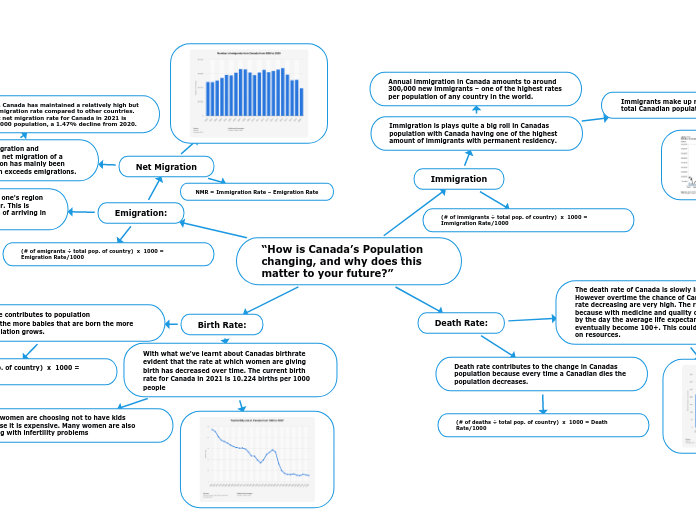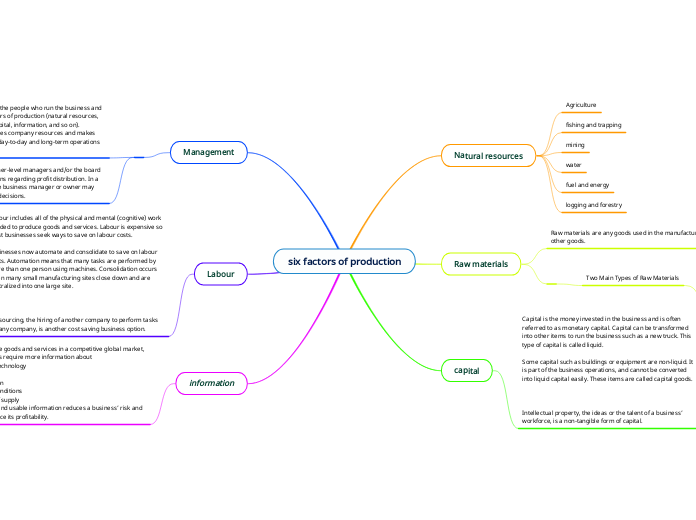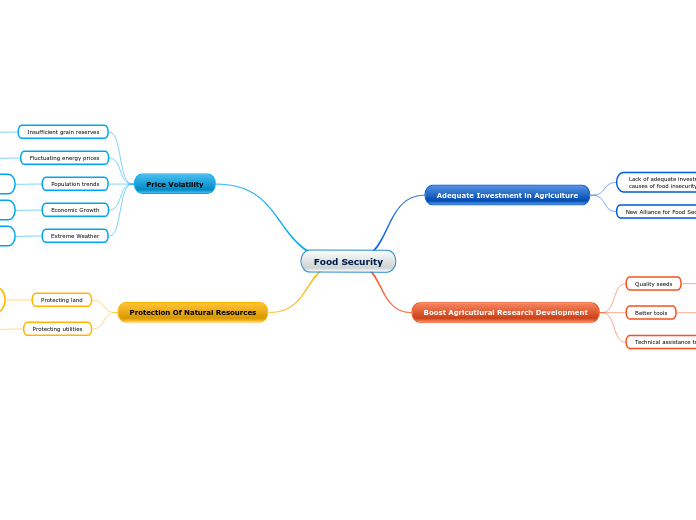“How is Canada’s Population changing, and why does this matter to your future?”
Immigration
(# of immigrants ÷ total pop. of country) x 1000 = Immigration Rate/1000
Immigration is plays quite a big roll in Canadas population with Canada having one of the highest amount of immigrants with permanent residency.
Immigrants make up roughly 21.5 percent of the total Canadian population.
Annual immigration in Canada amounts to around 300,000 new immigrants – one of the highest rates per population of any country in the world.
Death Rate:
The death rate of Canada is slowly increasing. However overtime the chance of Canadas death rate decreasing are very high. The reason for this is because with medicine and quality of life improving by the day the average life expectancy could eventually become 100+. This could cause a strain on resources.
Death rate contributes to the change in Canadas population because every time a Canadian dies the population decreases.
(# of deaths ÷ total pop. of country) x 1000 = Death Rate/1000
Emigration:
Net Migration
NMR = Immigration Rate – Emigration Rate
The difference between immigration and emigration is depicted by the net migration of a country. Canadas net migration has mainly been positive meaning immigration exceeds emigrations.
Since 2010, Canada has maintained a relatively high but declining emigration rate compared to other countries. The current net migration rate for Canada in 2021 is 6.281 per 1000 population, a 1.47% decline from 2020.
(# of emigrants ÷ total pop. of country) x 1000 = Emigration Rate/1000
Emigration refers to the act of leaving one's region or country of origin to settle in another. This is unlike immigration which is the action of arriving in a country.
Birth Rate:
With what we've learnt about Canadas birthrate
evident that the rate at which women are giving birth has decreased over time. The current birth rate for Canada in 2021 is 10.224 births per 1000 people
Many women are choosing not to have kids
because it is expensive. Many women are also dealing with infertility problems
Birth rate contributes to population
because the more babies that are born the more our population grows.
(# of births ÷ total pop. of country) x 1000 = Birth Rate/1000









